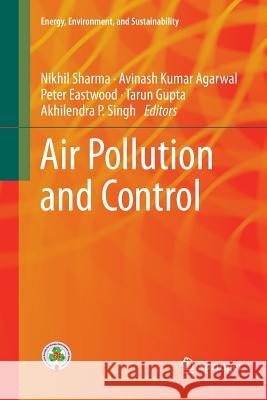Air Pollution and Control » książka
topmenu
Air Pollution and Control
ISBN-13: 9789811356001 / Angielski / Miękka / 2018 / 260 str.
Kategorie:
Kategorie BISAC:
Wydawca:
Springer
Seria wydawnicza:
Język:
Angielski
ISBN-13:
9789811356001
Rok wydania:
2018
Wydanie:
Softcover Repri
Ilość stron:
260
Waga:
0.39 kg
Wymiary:
23.39 x 15.6 x 1.47
Oprawa:
Miękka
Wolumenów:
01
Dodatkowe informacje:
Wydanie ilustrowane











